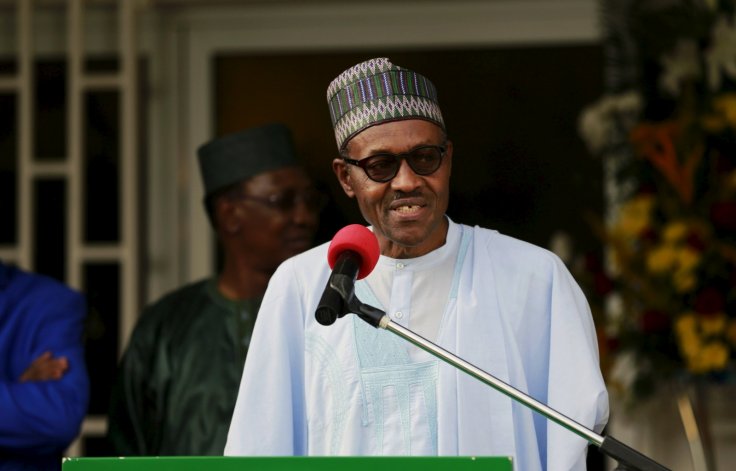President Muhammadu Buhari has charged his cabinet ministers and financial experts to think out of the box to develop the most effective strategies for pulling the nation out of its current economic recession.
“Indeed, the challenges we face in the current recession require out-of-the-box thinking, to deploy strategies that involve engaging meaningfully with the private sector, to raise the level of private sector investments in the economy as a whole,” the president said yesterday at the opening of a ministerial retreat tagged: “Building Inter-ministerial Synergy for Effective Planning and Budgeting in Nigeria.”
He charged participants at the retreat, held at the Banquet Hall of the Presidential Villa in Abuja, to design how best to implement his administration’s plans to rid the country of its dependence on oil, diversify the economy and bring the country out of recession.
The performance of the economy under the Buhari administration has come under searing attacks by notable public figures in the last few days, with many asking him to buckle down and deliver on the change he had promised the electorate during his electioneering last year.
In the forefront of critiques were the Emir of Kano, Alhaji Mohammed Sanusi II, former governor of the Central Bank of Nigeria; Prof. Charles Soludo; President of the Senate, Dr. Bukola Saraki; and the Archbishop of Sokoto Dioceses, Hassan Kukah.
They all called for more rigorous thinking through economic policies and asked the president to seek help from experts and private sector players to show him the way out of the woods.
Buhari showed that he was sensitive to these criticisms yesterday when he gathered his ministers and told them to explore more coordinated approach to the formulation and implementation of the policies of government.
He told them that there had been mismatch between government planned targets and budgetary outcomes at the national and sectoral levels in the past years, suggesting that this might have occurred because the ministries, departments and agencies (MDAs) had not been working together and building consensus around common national objectives.
Saying this had impeded growth and development of the country, the president explained that the retreat was apt and timely especially coming at a time when the process for the 2017 budget was in the offing and meant to correct this anomaly.
“It is in this context that this retreat has been designed to discuss issues around the state of the economy and build consensus amongst cabinet members and top government officials,” Buhari said, adding that the retreat would also serve as an opportunity to have a general overview of the economy and discuss the framework for the 2017 budget, its key priorities and deliverables.
The president, who sat through the first session, said he was ready to listen to the views of experienced economists and development experts on how best to implement his plans to rid the country of its oil dependence, diversify the economy and bring the country out of the current economic recession.
He said given that the retreat would background the 2017 budget, he expected that his ministers would come out with a determination and common position on how to have improved synergy amongst the various ministries and departments for the effective formulation and implementation of the upcoming budget.
Buhari expressed the commitment of his administration to leverage on private sector resources, through Public Private Partnerships (PPP) and other arrangements, in order to augment the scarce budgetary resources at government’s disposal and accelerate investments in building critical infrastructure.
He said it was for this reason that some key non-spending agencies, such as the Infrastructure Concession Regulatory Commission (ICRC), the Bureau of Public Enterprises (BPE), the National Sovereign Investment Authority (NSIA) and the National Pension Commission (PENCOM) were invited to participate in the retreat.
He said: “We are confident that the level of private investment will grow as we are determined to make it easier to do business in Nigeria by the reforms we are introducing under the auspices of the Presidential Committee on Ease of Doing Business.”
The president said government would continue to strategise on how it could turn the current challenges into opportunities for the nation, particularly the vibrant youth on whose shoulders laid the future of the country.
“This is why we have embarked on measures and actions that will open up the opportunities we have seen in the power, housing, agriculture, mining, trade and investment, Information Communication Technology (ICT) sectors, tourism, transport and other sectors,” he said, assuring the youth that government would remain steadfast in its effort to ensure greater progress and prosperity for them.
Saying that the task of repositioning the economy for change was beyond the executive alone, he asked for the support and cooperation of the private sector’s domestic and foreign investors, the state and local governments, the National Assembly and the judiciary as well as all well-meaning Nigerians.
The Minister of Finance, Mrs. Kemi Adeosun, in a private interaction with newsmen declared that part of the government’s strategies to get the country out of recession was to invest in infrastructure.
While sympathising with the suffering masses, Adeosun said the government was aware that the nation was really heading into a difficult period. She however assured Nigerians that plans were afoot to turn things around for good.
Resource persons invited to deliver papers at the one-day retreat included Mr. Bismarck Rewane, Mr. Obadiah Mailafia, Mr. Bode Augusto and Dr. Ayo Teriba.


 Forex3 weeks ago
Forex3 weeks ago


 Naira2 weeks ago
Naira2 weeks ago
 Billionaire Watch2 weeks ago
Billionaire Watch2 weeks ago






 Naira3 weeks ago
Naira3 weeks ago






 Naira2 weeks ago
Naira2 weeks ago


 Naira1 week ago
Naira1 week ago




 Naira4 weeks ago
Naira4 weeks ago






 Naira1 week ago
Naira1 week ago





















